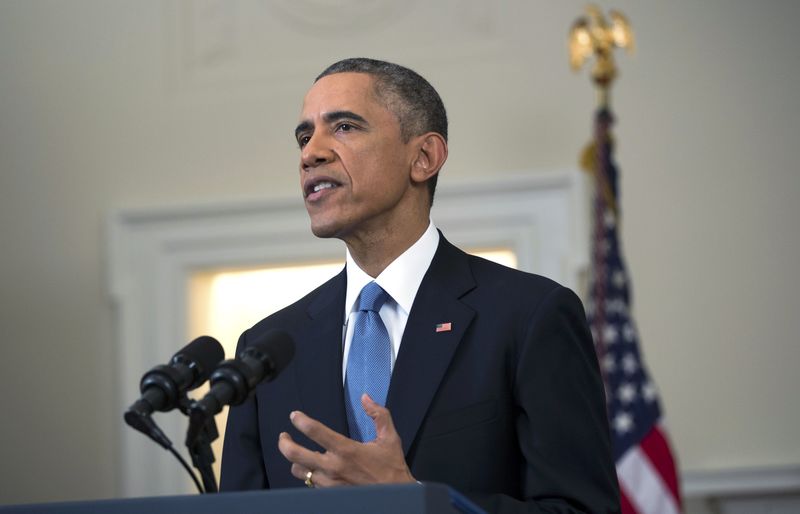BEIJING (Reuters) - China said on Friday it had lodged a protest with the United States after President Barack Obama signed into law legislation authorising the sale of up to four Perry-class guided missile frigates to Taiwan.
Foreign ministry spokesman Qin Gang said the Taiwan issue was one of China's core interests and remained the most important and most sensitive issue in Sino-U.S. ties.
"China firmly opposes the arms sale to Taiwan by the U.S. This position is resolute, clear and consistent," Qin told a daily news briefing.
"It is a crude interference of China's internal affairs, damages China's sovereignty and security interests and goes against the trend of peaceful development in cross-strait relations," he added.
"China expresses strong dissatisfaction and firm opposition to this and has lodged solemn representations with the United States both in Beijing and Washington. We reserve the right to take further action."
Taiwan's defence ministry, which plans initially to buy two of the ships, expressed its thanks to the United States for approving the sale, saying it was in keeping with the U.S. commitment in the Taiwan Relations Act to support Taiwan's security.
Under the Taiwan Relations Act, enacted in 1979 when Washington severed formal ties with the island in favour of recognising the People's Republic of China in Beijing, the United States is obligated to help Taiwan defend.
U.S. weapons sales in recent years to Taiwan have attracted strong condemnation in China, but have not caused lasting damage to Beijing's relations with either Washington or Taipei.
China and Taiwan have been ruled separately since defeated Nationalist forces fled to the island at the end of a civil war with the Communists in 1949. China has never renounced the use of force to bring Taiwan under its control.
While Taiwan and China have signed a series of landmark trade and economic agreements since 2008, political and military suspicions still run deep, especially in democratic Taiwan where many fear China's true intentions.

China's military modernisation has also been accompanied by a more assertive posture in its regional territorial disputes.
(Reporting by Sui-Lee Wee; Additional reporting by JR Wu in TAIPEI; Writing by Ben Blanchard; Editing by Robert Birsel)